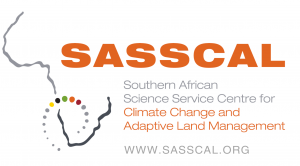 Southern African Science Service Centre for Climate Change and Adaptive Land Management (SASSCAL) and West African Science Service Centre on Climate Change and Adapted Land Use (WASCAL) have renewed their long term cooperation through signing a memorandum of understanding (MoU) in September.
Southern African Science Service Centre for Climate Change and Adaptive Land Management (SASSCAL) and West African Science Service Centre on Climate Change and Adapted Land Use (WASCAL) have renewed their long term cooperation through signing a memorandum of understanding (MoU) in September.
The MoU is based on mutual areas of support and aimed to establish a long-term relationship for developing complementary research, institutional development and capacity development. Beside their mutual interest in climate change adaptation and provision of climate services, WASCAL and SASSCAL are the two main partners of the H2Atlas-Africa project. The project is the first phase of a Go Green Go Africa initiative of the German Federal Ministry of Education and Research (BMBF) and African partners to investigate the potentials of green hydrogen production from the enormous renewable sources within the sub-regions. SASSCAL is the implementing partner in the Southern Africa region while WASCAL coordinates the West African activities.
Both institutions have enjoyed long-term funding of their core programmes from the Federal Ministry of Education and Research (BMBF).
SASSCAL has the mission to strengthen the regional capacity to generate and use scientific knowledge products and services for decision making on climate change and adaptive land management through research management, human capital development and services provision. WASCAL’s mission is to provide information and knowledge at the local, national, and regional levels to its West African member countries to cope with the adverse impacts of climate change and devise integrated mid and long-term options to build up resilient and productive socio-ecological landscapes through capacity building and environmental services in West Africa.
The MoU was signed by Dr Jane M. Olwoch, SASSCAL Executive Director and WASCAL Executive Director Dr Moumini Savadogo. Under this MoU both parties will develop and monitor joint initiative in the areas of research, capacity development and service provision in the thematic fields of climate services, food security, water security, sustainable renewable energy, biodiversity conservation and sustainable forests and woodlands.




